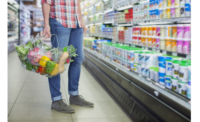Meeting the Increased Demand for Takeout and Delivery with Sustainable Packaging

As Americans isolate in response to the COVID-19 outbreak, there has been a definitive surge in the demand for food delivery. Apps like Uber Eats and Grubhub have seen a significant uptake in orders placed and have become a lifeline for struggling restaurants. Many food delivery apps have even changed their policies and waived delivery fees to further encourage people to stay home.
Furthermore, fast food restaurants, such as Burger King and Subway, have ramped up advertising campaigns to promote free delivery and encourage patrons to order their favorite meals right to their door, making food accessible while maintaining social distancing.
This situation represents a new and unique dilemma for brands that have built a reputation on their commitment to sustainable practices in response to consumer preferences. Just last year, a Consumer Trends Report from Asia Pulp & Paper showed that 64% of Americans prefer to purchase food products packaged sustainably.
Despite this demand for sustainable packaging, single-use plastic is still produced in vast quantities. The global production of plastic packaging equates to approximately 78 million metric tons and of that, a mere 14% is recycled. Plastic bags can take upwards of 10 to 12 years to decompose, plastic bottles can take 20 years to break down, due to their more complex and thicker polymers. Additionally, Styrofoam commonly used for takeout takes 500 years to completely decompose.
Over the past decade, there has been a substantial shift toward sustainable packaging, but COVID-19 has flipped this shift on its head. Due to the safety concerns of reusable bags, containers and mugs, plastic bags and packaging have reemerged as the assumed safer alternative to reusable ones. Social distancing measures now have consumers relying more heavily on food delivery services, further adding to a high demand for disposable food packaging that maintains food safety and quality. Habits that took close to a decade or more to establish are vanishing in just days.
Consumers are paying close attention to how the businesses they patronize are navigating the COVID-19 pandemic, especially the brands they trust to feed their families. Sustainability, safety, quality and accessibility are all key considerations as shoppers adjust their day-to-day purchasing decisions.
Food packaging plays a major role in meeting these consumer demands - including preserving food quality, protection from contamination and providing customer convenience. It also forms an extension of a brand’s personality and reinforces its commitment to a healthier planet. For restaurants that have made public sustainability commitments, now is still a time when innovation is possible, even in the midst of drastic market changes. As restaurant brands are evaluating their supply chains and navigating potential disruptions, options still exist for brands that are phasing single-use plastic out of the rotation.
It is for this reason that the makers of sustainable, recyclable and compostable take-out containers are racing to connect with packaging companies. For organizations that have been able to maintain steady production as the crisis has developed, they have an opportunity to support food brands as lockdowns continue to interrupt the normal course of business worldwide. Paper packaging products such as the Bio Natura Foopak solution from Asia Pulp & Paper provide a solution that is both recyclable and compostable, allowing for brands to continue to reduce plastic and Styrofoam usage without interrupting crucial workflow. Solutions like this maintain the food quality and safety that consumers are paying attention to now more than ever, while making it easier for consumers to sustainability dispose of the packaging once their food arrives at home. These types of paper solutions are more easily recycled while also being industrial compostable within 12 weeks — a drastic difference from plastic containers, cups and straws.
Now is the time for food and restaurant brands to connect with their supply chains and understand how safety and sustainability come together in this moment of crisis. As the surge for food delivery services continues, the packaging industry will continue to innovate to help food brands satisfy consumer demands for both environmental sustainability and unprecedented mass consumption.
Looking for a reprint of this article?
From high-res PDFs to custom plaques, order your copy today!







